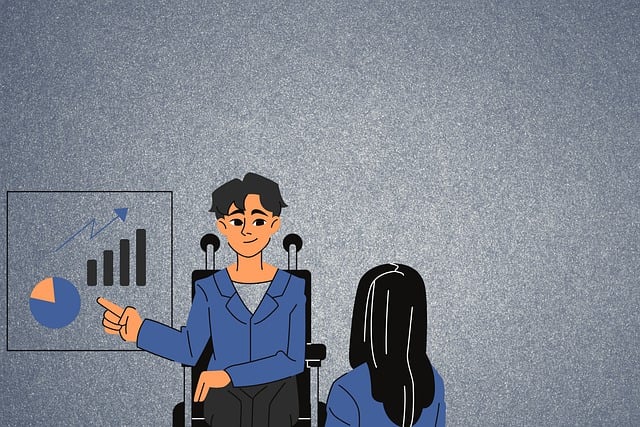The rapid evolution of Local SEO, driven by technological advancements like smartphones, voice searches, and AI, is poised to shape the future as explored in the upcoming Future of SEO Conference. Key trends include the rise of AI-powered search algorithms, voice search optimization, user-generated content (UGC), and mobile-first indexing. By 2025, Local SEO will focus on enhancing user experience through personalized content, seamless navigation, and integrated social media strategies. Advanced analytics tools with predictive capabilities will enable precise tracking and data-driven insights, allowing businesses to adapt their strategies for optimal performance in a dynamic digital landscape.
“Welcome to our comprehensive guide on Local SEO Innovations 2025, designed to equip business owners and marketers with insights from the evolving landscape of local search. In this article, we explore pivotal trends shaping the future of SEO at the local level, as predicted by industry experts and highlighted in prominent Future of SEO Conferences. From voice search’s surge to AI-driven analytics, learn how to enhance user experience, leverage social media, and navigate the dynamic world of local listings to stay ahead in 2025 and beyond.”
The Evolving Landscape of Local SEO: A Historical Perspective

The local search engine optimization (SEO) landscape has undergone a remarkable transformation over the years, adapting to technological advancements and changing consumer behaviors. In the past, businesses primarily relied on traditional SEO tactics to rank higher in organic search results, but as digital environments evolved, so did the strategies to capture local audiences. The rise of smartphones and voice searches accelerated this shift, forcing marketers to focus on optimizing for location-based queries.
Historically, Local SEO Innovations have been driven by updates to search algorithms, such as Google’s localized search functionality, which introduced the concept of ‘three-pack’ results—a dedicated section showcasing the top local businesses relevant to a user’s search query. This marked a significant change in how consumers discover and interact with local services, prompting businesses to invest in building robust online presence through Google My Business listings, consistent NAP (Name, Address, Phone number) citations, and engaging content tailored to their target demographics. As we move towards 2025, the future of SEO conferences will likely continue to explore these trends, delving into innovative strategies that merge local focus with emerging technologies like AI and location-based analytics to redefine how businesses connect with their customers.
Key Trends Shaping the Future of Local Search

The local search landscape is rapidly evolving, shaped by technological advancements and shifting consumer behaviors. As we look ahead to 2025, several key trends are poised to redefine how businesses connect with their target audiences. One of the most prominent shifts is the integration of voice search technology, as more users rely on virtual assistants for quick, on-the-go information. This trend demands a strategic focus on natural language processing and location-based queries within Local SEO strategies.
Another significant development is the increasing importance of user-generated content (UGC). With the rise of social media platforms, customers are sharing their experiences and reviews more actively than ever. Businesses can leverage this by encouraging customer feedback and incorporating UGC into their marketing campaigns to build trust and credibility. Additionally, the Future of SEO Conference highlights the need for businesses to optimize for mobile-first indexing, ensuring their websites are responsive and seamless across all devices, given the growing mobile web usage.
Voice Search and Its Impact on Local Business Visibility

Voice search has emerged as a powerful trend in the digital landscape, and its impact on local business visibility cannot be overstated. As more people adopt virtual assistants and smart speakers, the way we interact with technology is changing dramatically. This shift towards voice-activated searches presents a significant opportunity for local businesses to enhance their online presence and reach potential customers.
In the upcoming Future of SEO Conference, experts will delve into how businesses can optimize their strategies for this evolving search behavior. By understanding the nuances of voice search queries—which tend to be more conversational and location-specific—local businesses can craft tailored content that resonates with users’ needs. This approach not only improves local search rankings but also fosters a more engaging user experience, ensuring that businesses stay relevant and visible in an increasingly competitive market.
Enhancing User Experience: Design Innovations for Local SEO

As we look ahead to 2025, one of the key areas of focus in Local SEO is enhancing user experience through design innovations. The Future of SEO Conference has highlighted the importance of intuitive and user-friendly interfaces for local businesses aiming to improve their online visibility. By incorporating features like voice search optimization, personalized content delivery, and seamless mobile navigation, local SEO strategies can better cater to the preferences and behaviors of modern consumers.
These design advancements not only make it easier for potential customers to find and engage with local businesses but also encourage longer session durations and higher conversion rates. With the continued growth of digital platforms and changing consumer habits, staying ahead of these trends is crucial for local businesses to stay competitive in the ever-evolving landscape of SEO.
The Role of Artificial Intelligence in Optimizing Local Listings

The year 2025 is poised to be a game-changer for local SEO, with Artificial Intelligence (AI) taking center stage in optimizing listings and enhancing user experiences. As technology continues to evolve at a rapid pace, AI is revolutionizing how businesses connect with their local customers. One of the most significant impacts will be seen in the precision and personalization of local search results, making it an exciting time for marketers and business owners alike.
At the forefront of this innovation, AI algorithms can now analyze vast amounts of data to understand user intent better than ever before. This enables them to deliver tailored recommendations and accurate business information, ensuring that locals find exactly what they’re looking for instantly. With advancements in natural language processing, AI-powered virtual assistants and chatbots will play a crucial role in managing customer interactions and providing real-time support, thereby improving overall local SEO performance at the Future of SEO Conference.
Leveraging Social Media to Boost Local Search Rankings

As we look ahead to 2025, the landscape of Local SEO is set for significant shifts, especially with social media platforms becoming even more integrated into search algorithms. What was once a niche strategy is now a crucial component in achieving top local search rankings. Business owners and marketers must embrace these changes to stay competitive in the future of SEO Conference discussions.
Leveraging social media allows businesses to connect directly with their target audience, building trust and brand loyalty. Regularly updating business accounts on platforms like Facebook, Instagram, and Twitter provides fresh content for search engines to index, boosting local visibility. Additionally, social media offers valuable insights into customer preferences and behaviors, enabling businesses to tailor their services and offerings accordingly for better local SEO performance.
Measuring Success: Advanced Analytics for Local SEO Strategies

Measuring success is a critical aspect of any marketing strategy, and Local SEO is no exception. As we move into 2025, advanced analytics tools are set to redefine how businesses gauge their local search performance. By leveraging data-driven insights, marketers can fine-tune their strategies with precision. These innovations will enable more accurate attribution modeling, helping businesses understand the customer journey from click to conversion.
The Future of SEO Conference has highlighted the importance of micro-level tracking, allowing for a granular understanding of local listings’ impact on offline sales and foot traffic. With machine learning capabilities, predictive analytics can forecast trends and identify emerging patterns, ensuring that Local SEO strategies remain dynamic and adaptable to the ever-changing digital landscape.
